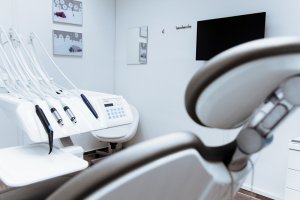Are you considering getting dental implants or other dental work in Hungary? Restorative and cosmetic dental work can get very expensive in the US, which is why Hungary dental implants, teeth whitening, or veneers are a great option.
By visiting a dentist in Hungary for dental implants, veneers, crowns, and other work, you could save a huge 50-75%.
Of course, there are many things to consider before you commit to traveling overseas for dental work:
- Finding a reputable dentist
- Hungary dental prices and comparing it to the cost in the US
- Education and regulation of dentists in Hungary
- A checklist for getting dental work in Hungary
Medical Tourism Corporation can help if you want to get dental work in Hungary. MTC is an experienced medical and dental tourism company that conducts extensive research into clinics abroad, ensuring they provide the best care. Fill in your details below for a free quote.
We hope that this article will give you all the information you need to decide whether to go ahead with dental treatment in Hungary.
In This Article
Hungary dental tourism

There are many reasons, including price and treatment quality, why people travel to Hungary for dental treatment such as veneers, implants, tooth whitening procedures, and more:
- Price: Probably the main reason why people get cosmetic dentistry in Hungary is the money they save when compared to private treatment in the US – especially for dental implants and veneers, which can cost thousands of pounds.
- Training and qualifications: Dentists in Hungary undergo extensive training and are well-regulated.
- State-of-the-art equipment: Many clinics in Hungary have invested heavily in the latest technology to make dental treatments as effective, quick, and comfortable as possible.
- Speed of treatment: Rather than wait months for treatment in their home country, patients may receive dental treatment in Hungary in a matter of days.
- Excellent facilities: There is a strong emphasis on customer care and making the experience a pleasant one, with some clinics offering spa-like facilities for patients to use during their stay.
- Sightseeing: If you’re traveling overseas, you may as well be somewhere picturesque, and Budapest and many of the surrounding areas have much to offer in terms of sightseeing and recreation.
It’s hard to know exactly how many tourists from the US travel abroad each year for medical treatment, but some estimates put the number at 700,000 patients annually.
A significant number of people worldwide are traveling to Hungary for dental treatment. Dental implants and oral surgery are the most common treatments for Americans to have overseas, and Hungarian dentists don’t just cater to visitors from the US; many patients travel from nearby countries like France, the UK, Germany, Austria, Switzerland, and Italy as well.
Patients from Germany and Austria started crossing the border to Hungary for cheaper dental care back in the 1980s. This led to ‘dental towns’ such as Mosonmagyaróvár, which has 160 dental surgeries but a population of just 32,000.
As low-cost airlines emerged, patients were able to travel cheaply from further afield, as the video below explains. More dental surgeries were gradually opened in Budapest to offer greater convenience to air travelers.
With so many good reasons to travel to Hungary for dental implants and other work, why not get started finding a quality clinic for dental work in Hungary now?
Education and regulation of Hungarian dentists
There are four dental schools in Hungary, all with programs offering a 5-year educational training to become a dentist.
Hungary’s oldest medical school, Semmelweis University, was founded in 1769 and has the country’s largest intake of dental students each year. Nestled in the heart of Budapest, it offers dental training in Hungarian, English, and German.
Around 40% of graduates each year are foreigners — a testament to the quality of its education. On completion of training, graduates are awarded a Doctor of Dental Medicine (D.M.D.) degree.
Dentists who wish to become qualified in a specialist field such as orthodontics, periodontology, or prosthetic dentistry must first complete 36 months of work as an employee at a professional practice. They may then return to university to complete a postgraduate course.
As a member of the EU, all dentists practicing in Hungary must conform to EU standards. In addition, they must register with the Ministry of Health, which grants a certificate to those who can demonstrate a certain standard of operation. To keep this license, a dentist must stay educated on current standards by regularly attending seminars, lectures, etc.

Many Hungarian dentists are also registered with the Hungarian Medical Chamber (Magyar Orvosi Kamara – MOK). Although voluntary, this accreditation is a sign of prestige which is why so many dentists strive to achieve it by meeting rigorous criteria.
This membership is something to look out for in your search for a dentist in Hungary.
Clinics in Hungary are not subject to continuous monitoring, but it’s assumed that a dentist who has reached a certain standard will care about how his or her clinic operates.
The ISO management quality system is mandatory, and clinics should have certifications that patients can check. You can select one that is ISO 9001 accredited if you want that extra peace of mind when having dentistry in Hungary.
There is also a Hungarian Dental Tourism Development program, which is supported by the government and is a collaboration between the tourism industry and dental health professionals. They monitor professional standards and provide economic support for dental clinics.
Visiting Hungary
A lot of Hungary’s best dental clinics are clustered in the historic capital, Budapest. Many clinics offer an airport pickup service, so you needn’t worry about finding your way in a taxi.
Clinics in locations away from the capital will take a little longer to reach, but again you should have no problem getting assistance with your journey. You may well find that prices are even lower in more remote areas.
Flights take around 9 hours (from New York) and cost upwards of $2,000. A straightforward consultation or treatment can be completed in a single day, leaving lots of time for the rest of your trip. For more complex treatments, such as dental implants, you’ll probably need to stay a few nights near the clinic and possibly make several visits.
Some clinics provide their own accommodation, but even if yours doesn’t, there are accommodation options to suit every taste and budget. 3-star hotel rooms in Budapest start from around $30 per night.

It’s well worth giving yourself time to do some sightseeing too, especially if you’re staying in Budapest. Up until 1872, the cities of Buda and Pest, divided by the Danube River, were separate.
Although now united, they each maintain their own individual character, with hilly Buda home to a castle that offers spectacular views over the river and the rest of the city.
A walking tour will give you a taste of the city, but you’ll need a few days to explore it at your own pace. Some clinics even provide their own tours and tourism programs which you can fit in around your treatment. Drop into one of the thermal spas, for which Hungary is famous, for a little relaxation pre- or post-treatment.
Hungary dental prices
The following table provides a comparison of dental implant prices in Hungary vs. the US. You can see that, even taking into account accommodation, the cost of dental implants and veneers in Hungary is significantly less than in the US. The more treatment you have, the greater the potential savings.
Dental treatment in Hungary | Dental treatment in the US | |
Consultation fee | Often free | $60 - $200 |
Single tooth implant | $600 | $2,000 |
Porcelain veneer | $300 | $1,000 |
Full mouth implants | $2,300 - $9,800 | $7,000 - $90,000 |
Flights | From $2,000 | N/A |
Accommodation | From $30 per night | N/A |
Of course, prices for veneers and dental implants in Hungary vary from one clinic to the next. These are rough guides only, and you should shop around to find a price and clinic you’re happy with.

Why are Hungary dentists cheaper?
It is, in fact, business overheads that largely determine the cost of treatment. Renting business premises in Budapest is not as expensive as in New York, for example. Things like utilities, salaries, and maintenance are all cheaper as well.
Additionally, prices are kept low thanks to the government’s support of dental tourism in Hungary.
These savings quickly add up and mean dentists can offer their services at a comparatively low price. With larger profit margins, they can also invest more in equipment and facilities to improve the experience of their patients.
Many dental clinics in Hungary are kitted out with state-of-the-art equipment and offer a level of care that far outweighs that of many US clinics.
The dental tourism boom itself has also helped to keep prices down and standards up. As more and more dentists open their doors to patients from countries like the US, the UK, France, and Germany, they are constantly competing with one another to offer the best service possible.
Do keep in mind that not all dentists in Hungary will have made this investment in technology, training, and facilities. This means you shouldn’t just go for the cheapest treatment you can find. Do your own research by checking online for Hungary dental tourism reviews and asking plenty of questions to ensure your chosen clinic offers the standard of care you need.
Getting dental implants in Hungary
Once you have found a clinic you’re happy with, you’ll need to have a consultation. This is essential for planning your treatment, calculating the exact cost, and ensuring you’re comfortable with everything.
Your clinic may refer you to a dentist in the US for this, or they may conduct a consultation on your first visit. Consultations are often provided free of charge, and some clinics may go as far as to provide free airport transfers and even reimburse the cost of your flights if you go ahead with the proposed treatment.
The duration and number of visits required will depend on the type of implants you have.
Here’s a review from a man who traveled from Iceland to Hungary to get dental work done because Icelandic dentistry is getting more and more expensive:
The implant procedure
Traditional implants are fitted in stages. First, the implant itself is inserted into the jaw bone and the gum tissue is stitched back over the site. It takes four to six months for this to settle and fuse with the bone.
At the next visit, the abutment will be installed, and you may be given a temporary crown to cover it. Around two weeks later, it’s time to measure your mouth so the implant crown or bridge can be made to fit just right. The manufacturing usually takes a few days.
The complete procedure requires three or four visits spread over several months.
All-on-4 implants or ‘teeth in a day’
All-on-4 implants can be fitted in a single day, making them a popular choice for patients getting teeth implants in Hungary. Since they only require four implants in the lower jaw and 6 in the upper, they also work out cheaper than a full mouth of traditional implants.
Patients may still be advised to stay for a few days so the dentist can monitor progress, but there is no need for multiple trips.
You can read about the dental implant process in much more detail in our complete guide to dental implants.
Finding the right dentist for you
The choice of dentists in Hungary can be a little overwhelming when you first start to consider your options. You can book with clinics directly but there are also plenty of agencies who partner with certain clinics and can organize everything for you.
Some people like the peace of mind that comes with having everything done for them, whereas others prefer to deal with the clinic directly to get a feel for how they work and what their service is like.
It’s also a good idea to visit your usual dentist for advice before you commit to any treatment overseas. He or she will be able to identify any underlying oral health problems that may prevent you from having dental implants or other treatment abroad.
Hungary dentist checklist

As you do your research to find the best dentist in Hungary for your needs, here are some questions to ask to ensure you have all bases covered:
- How do they provide their consultations?
- At what point will you be given a fixed price for your treatment?
- What is included in the cost, and what will you need to pay extra for?
- Are you happy with the level of English they speak?
- How are they accredited?
- What care will they provide while you are recovering?
- What aftercare will you need to arrange when you get back home?
- Do they provide any insurance and/or guarantees?
- What happens if you experience complications after returning home?
- Verify access to a specialist in the care you need
Other locations for dental tourism
It’s not just Hungary where Americans can get cheap but high-quality dental work in Europe. For instance, you can head to Turkey, with high-quality clinics in Izmir and Istanbul, known for their low prices on implants.
Dentistry in Poland also has an excellent reputation for training and standards, with a similarly well-established dental tourism industry. It’s estimated that over 100,000 people a year visit the country for dentistry alone.
The cities of Warsaw, Gdansk, and Krakow all have plenty of modern dental clinics to choose from, and they offer some interesting sightseeing – particularly for fans of history.
Romania is another popular European option. Their dental training matches EU standards, and the lower cost of living means big savings on dental care. Read more about dentists in Romania. Just across the southern border is Bulgaria, where you can also find low-cost dental care.
For those who prefer a more Mediterranean climate, Spain is a good choice. In fact, it’s the second most popular destination for tourists getting dental work in Europe, behind Hungary. Spain has a long-established reputation for top-notch dentistry at low prices compared to the US.
While saving money on your dental treatment, you can enjoy a city break in Barcelona or Madrid or soak up the sun in one of Spain’s many coastal resorts. Read more about getting dental treatment and dental implants in Spain.
If you aren’t willing to travel so far for dental work, there are several dental tourism hubs closer to home. Be sure to check out our articles on dental tourism in Mexico, and dental implants in Thailand. We also have an article about dental implants in the Philippines.
Conclusion
Hungary has a very well-established dental tourism system, supported by the government and collaboration between dental tourism and Hungarian dentists.
If you want to go get dental implants in Hungary, or any other treatment, make sure to research your clinic beforehand and consider getting help from a company like Medical Tourism Corporation, which has many years of experience putting patients in touch with reputable clinics abroad.
You can also read our article on Hungary dentist reviews to learn more about real patient experiences.
FAQs
How much are dental implants in Hungary?
Dental implants in Hungary cost around $600 for a single implant and from $2,300 to $9,800 for a full mouth of dental implants, compared to up to $80,000 in the US.
Is Hungary a good place for dental work?
Hungary is a good place to get dental work done if you need expensive treatment and can’t find a way to pay for it in the US. Dentists are held to strict standards, and clinics have advanced equipment.
Why should I think about visiting Hungary for dental work?
You should consider visiting Hungary for dental work because it is renowned for providing high-quality dental care at more reasonable costs. With a large number of highly qualified dentists and advanced dental facilities, Hungary has a well-established reputation for dental tourism.
Does Hungary’s dental care meet international standards?
Yes, a lot of dental clinics in Hungary follow international quality standards, and dental care is provided to a high grade. Hungary’s dentists are frequently trained in respectable institutes with good facilities.
Semmelweis.hu: Why is Hungary the main destination country in dental tourism? Consulted 6th April, 2023.
Forbes.com: Americans are flocking to other countries for medical procedures. Consulted 6th April, 2023.
IMTJ.com: Hungary: Medical tourism profile. Consulted 6th April, 2023.





